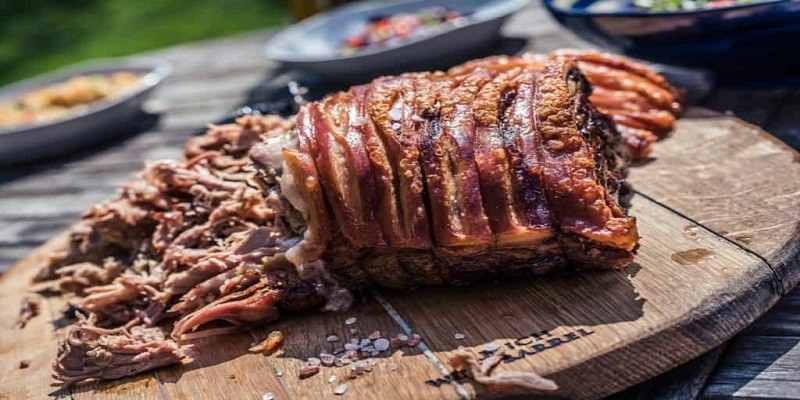Last Updated on July 27, 2024
Yes, you can eat pork skins while pregnant, but they must be fully cooked and consumed in moderation. Ensure they are prepared at high temperatures to avoid any bacterial contamination. However, be cautious of their high salt and fat content, which can pose health risks if consumed excessively.
Pregnancy often brings about numerous dietary questions and concerns. One common query is whether it is safe to eat pork skins during pregnancy. Pork skins, also known as pork rinds, are a popular snack, but their safety and nutritional value during pregnancy need careful consideration. This article explores the safety, nutritional aspects, risks, and alternatives to eating pork skins while pregnant.
What is Pork Skins?
Pork skins, also known as pork rinds, are a type of snack made from the fried or roasted skin of pigs. They are typically seasoned with salt and spices to enhance their flavor. This crunchy snack is popular in many cultures and is often enjoyed for its texture and taste. Pork skins are high in protein and fat, making them a satiating snack, but they also contain significant amounts of sodium and calories.
Nutritional Value of Pork Skins
| Nutritional Value | Details |
|---|---|
| Calories | Approximately 150-160 calories per ounce |
| Protein | Around 9 grams per ounce |
| Fat | About 9-10 grams per ounce |
| Sodium | Roughly 500-600 mg per ounce |
| Carbohydrates | Typically 0 grams per ounce |
| Vitamins and Minerals | Contains small amounts of iron and B vitamins |
Risks of Eating Pork Skins During Pregnancy
| Risks | Details |
|---|---|
| High Sodium Content | Can lead to increased blood pressure and water retention |
| High Fat Content | May contribute to excessive weight gain and cardiovascular issues |
| Potential Contamination | Risk of bacterial contamination if not cooked properly |
| Additives and Preservatives | Some brands may contain MSG and other additives that could cause adverse reactions |
Safe Ways to Eating Pork Skins During Pregnancy
To safely enjoy pork skins during pregnancy, ensure they are fully cooked at high temperatures to eliminate any harmful bacteria. Opt for commercially prepared pork skins that have been processed under strict hygiene standards. Limit your intake to avoid excessive sodium and fat consumption. Pairing pork skins with healthier snacks like vegetables can help balance your diet.
Alternatives to Pork Skins During Pregnancy
| Alternatives | Precautions |
|---|---|
| Baked Vegetable Chips | Ensure they are low in sodium and free from artificial additives |
| Air-Popped Popcorn | Avoid excessive butter and salt |
| Nuts and Seeds | Choose unsalted varieties and consume in moderation |
| Whole Grain Crackers | Opt for those with minimal added sugars and preservatives |
Experts Tips
- Moderation is Key: “Enjoy pork skins in moderation to avoid excessive sodium and fat intake”.
- Check Labels: “Always read the labels for sodium content and avoid those with high amounts”.
- Pair with Healthy Foods: “Combine pork skins with fresh vegetables to create a balanced snack”.
FAQs
Can I eat pickled pork skins during pregnancy?
No, it is not recommended to eat pickled pork skins during pregnancy due to the risk of bacterial contamination from the pickling process.
Are pork skins a good source of protein during pregnancy?
Yes, pork skins are high in protein, but they should be consumed in moderation due to their high fat and sodium content.
Can pork skins cause high blood pressure during pregnancy?
Yes, the high sodium content in pork skins can contribute to increased blood pressure, so it’s important to limit intake.
Are there any pork skins that are safer to eat during pregnancy?
Commercially prepared pork skins that are fully cooked and have lower sodium levels are safer options during pregnancy.
What are some healthier alternatives to pork skins?
Healthier alternatives include baked vegetable chips, air-popped popcorn, nuts, seeds, and whole grain crackers.
Conclusion
Eating pork skins during pregnancy can be safe if they are fully cooked and consumed in moderation. While they offer a crunchy, protein-rich snack option, their high sodium and fat content necessitate cautious consumption. Exploring healthier alternatives and adhering to expert tips can help ensure a balanced and safe diet during pregnancy. Always consult with your healthcare provider for personalized dietary advice.

